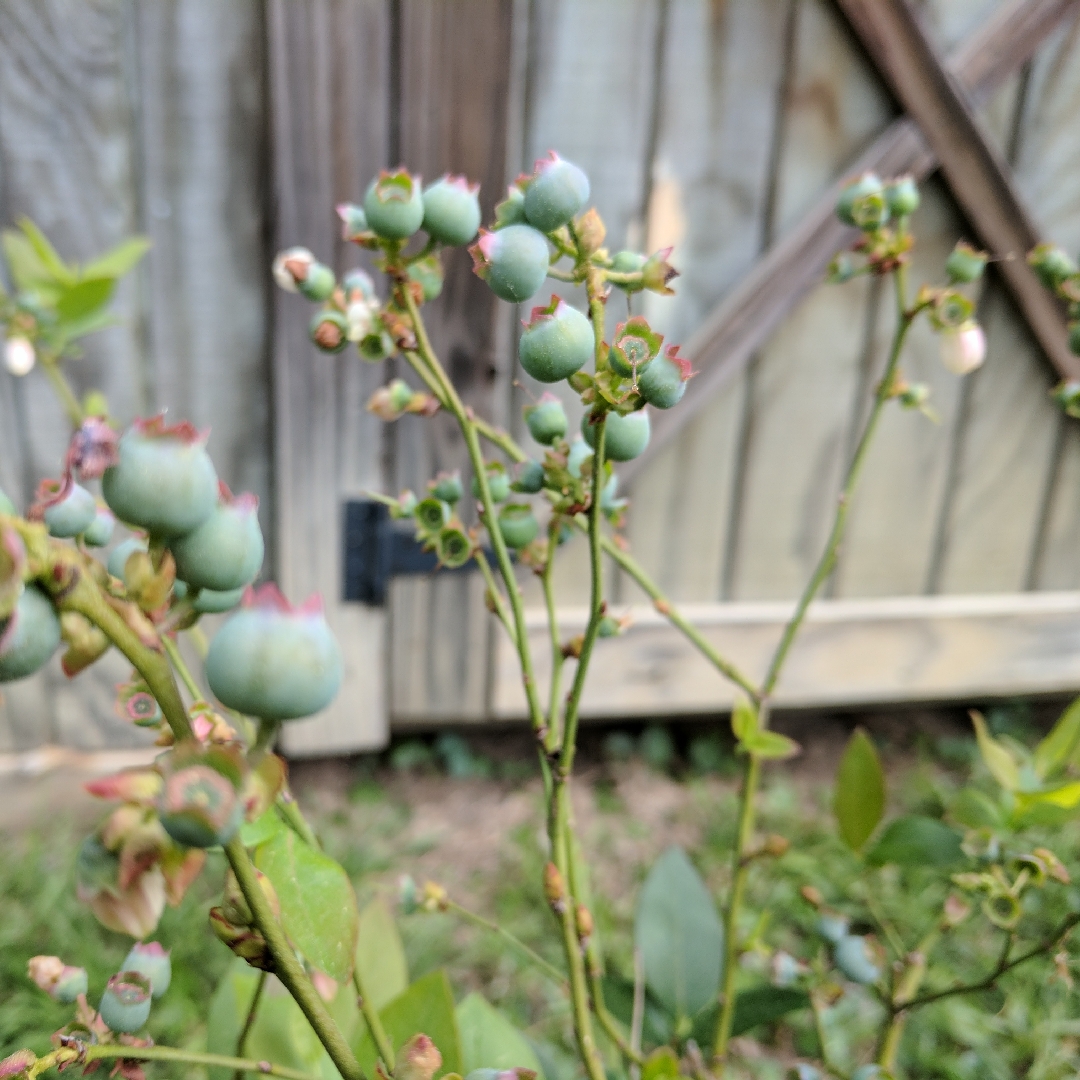
Vaccinium virgatum
Rabbiteye Blueberry
Blueberry bushes can be evergreen or deciduous shrubs that have bell-shaped flowers that can be white, pink or red, followed by 5-16 mm. berries that start green, turn reddish-purple, and, when ripe, dark purple, with a "bloom". They will only thrive in acidic soil, so if your soil is neutral or alkaline, either increase the acidity by adding sulphur chips, or acidic organic matter (such as pine-needles or composted conifer cuttings), or grow in containers, using ericaceous compost. 'Rabbiteye' is not self-fertile, and requires two or more pollinators (ie two or more different varieties grown nearby to pollinate the plant)
Contributed by @patchmomma
-
Full sun to partial shade
-
Occasional watering
-
Frost Hardy: 23F (-5°C)
-
Moist and free draining
Common name
Rabbiteye Blueberry
Latin name
Vaccinium virgatum
type
Fruiting Plant
family
Ericaceae
ph
3.5 - 5.5 Acid - Neutral
Plant & bloom calendar
-
Best time to plant
-
When to harvest
full grown dimensions
 1.00 M
2.00 M
1.00 M
2.00 M
Vaccinium virgatum
Blueberry bushes can be evergreen or deciduous shrubs that have bell-shaped flowers that can be white, pink or red, followed by 5-16 mm. berries that start green, turn reddish-purple, and, when ripe, dark purple, with a "bloom". They will only thrive in acidic soil, so if your soil is neutral or alkaline, either increase the acidity by adding sulphur chips, or acidic organic matter (such as pine-needles or composted conifer cuttings), or grow in containers, using ericaceous compost. 'Rabbiteye' is not self-fertile, and requires two or more pollinators (ie two or more different varieties grown nearby to pollinate the plant)
Propagating by cuttings
From Mid Summer TO Late Summer
Semi hard wood cuttings are taken from the current years growth from mid to late summer. The bottom of the cuttings is hard and soft on the top. With a sharp knife take a cutting of about 14cms, remove lowest leaves, dip end into rooting hormone, and place round the edge of a pot filled with ericaceous compost. Water well, using rainwater if possible. They must remain moist until rooted. Place under glass, but in semi shade..
Planting
From Late Autumn TO Early Spring
The essential requirement for blueberry bushes to thrive is acidic soil. If your soil is neutral or alkaline, either increase the acidity by adding sulphur chips, or acidic organic matter (such as pine-needles or composted conifer cuttings), or grow in containers, using ericaceous compost. Plant bushes during the dormant season, from late Autumn to early Spring.









